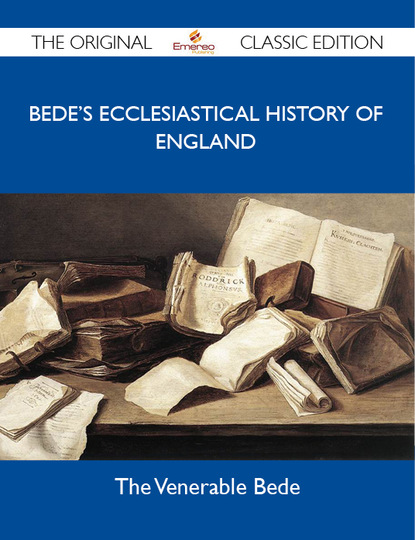
Bede's Ecclesiastical History of England - The Original Classic Edition скачать fb2
Bede the - Bede's Ecclesiastical History of England - The Original Classic Edition краткое содержание
This book is a must read for anyone studying English history. It was completed by the monk Bede in 731 AD and contains a wealth of material he gathered from sources available at that time. He provided an overview of Roman emperors, and gives accounts of conflicts within the Roman empire and particularly within Briton. He provided a good account of Saxons and other invaders and their conflicts with the Romano-Britons. He also provided various sidelights including accounts of miracle cures using holy relics. Unfortuneately, the material is often all too brief, and the original sources seem to have vanished in the dust. For example, the uprising (led by the warrior queen Boadicea) against the Romans in 61 A.D. is described by Bede in a single sentence in the Greater Chronicle (4021) when, writing of Nero, he states this emperor attempted nothing of a military kind, and even nearly lost Britain, where two of the finest towns were captured and sacked (he is somewhat in error as three towns were burned to the ground, and the entire Roman Ninth Legion was massacred). <p> Chapters are very short, e.g., less than a page. I originally became interested while looking for material on King Arthur. Bede noted in Chapter 11 that after Gratian died, in 407, in his place Constantine, a worthless soldier of the lowest rank, was elected in Britain solely on account of the promise of his name and with no other virtue to recommend him. This Constantine challenged the Romans in Gaul and was defeated and killed by the Roman officer Constantius. It is probable that this Constantine is the one alleged to be the grandfather of Arthur, but no solid connection is found (the name Constantine seems to have been fairly common). In Chapter 16, Bede again refers to the Britons after invaders (Saxons, etc.) had ravaged the land. Bede notes, in reference to the Britons, Their leader at that time was a certain Ambrosius Aurelianus, a discreet man, who was, as it happened, the sole member of the Roman race who had survived this storm in which his parents, who bore a royal and famous name, had perished. Under his leadership the Britons regained their strength… Bede then briefly mentions Mount Badon and goes on to discuss other things (this account appears to have been taken from the monk Gildas, On the Ruin of Britain, written circa 520/540 A.D. – the decisive battle at Mount Badon was circa 516 A.D.). In the Greater Chronicle (4444), Bede again briefly mentions Ambrosius Aurelianus and his parents, who had worn the purple… <p> The book is sometimes a little hard to follow chronologically because sometimes he gives an actual year AD, and sometimes he gives a particular year in some emperors reign, e.g., the ninth year in the reign of Emperor so-and-so. It is somewhat heavy on religious detail, e.g., providing the complete statements by Pope Gregory on allowable marriages between related men and women and on relations between husbands and wives.
Скачать книгу «Bede's Ecclesiastical History of England - The Original Classic Edition» Bede the
Чтобы оставить свою оценку и/или комментарий, Вам нужно войти под своей учетной записью или зарегистрироваться



